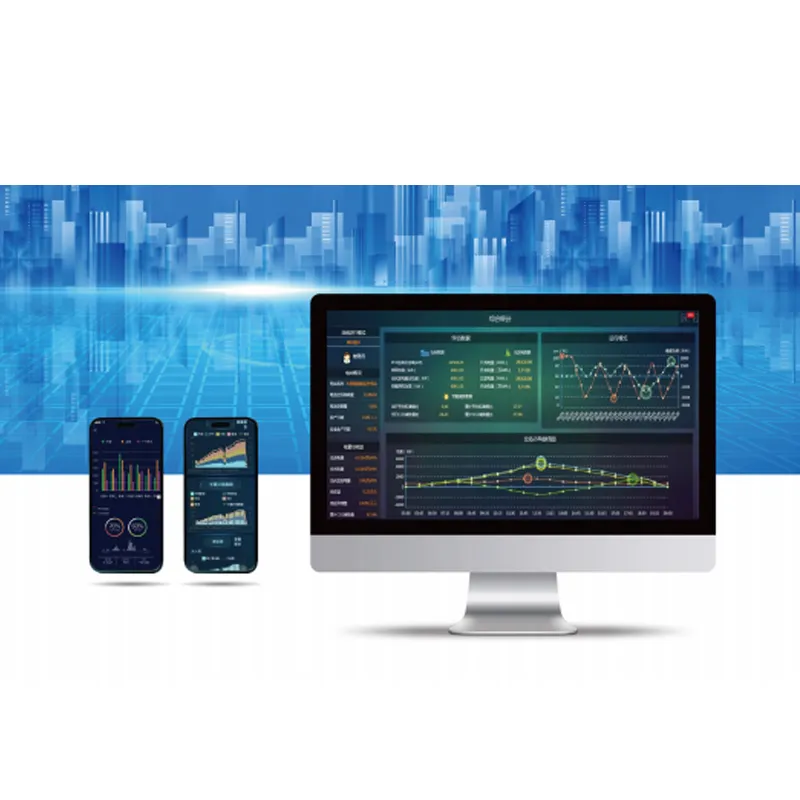
مايو . 09, 2025 16:26 الرجوع للقائمة
Smart Energy for Daily Life
A reliable energy management system is no longer just a tool for industrial plants or large commercial buildings—it’s now becoming part of everyday home and business use. An energy management system helps monitor, control, and optimize how energy is consumed across buildings, homes, and industrial equipment. It tracks electricity usage in real time and provides insights into energy waste, giving users the power to make smarter decisions. Whether you’re trying to reduce costs, cut back on your carbon footprint, or simply want more control over your monthly bills, a well-designed energy management system offers a clear and effective way to manage consumption without changing your routine. By allowing users to analyze patterns and spot inefficiencies, this technology provides a practical and approachable solution for energy savings across all sectors.

How an Intelligent Energy Management System Adds Value
An intelligent energy management system takes things to a new level by introducing smart technologies like AI algorithms, sensors, and automation. This system doesn’t just collect data—it interprets it in real time and makes automatic adjustments to maximize efficiency. For instance, if it detects that a certain area is consuming excess electricity during non-peak hours, it can power down equipment automatically or send alerts for human intervention. What makes an intelligent energy management system especially valuable is its adaptability. It learns from usage habits, reacts instantly to environmental changes, and even predicts energy demand. This smart control reduces unnecessary energy use and enhances long-term sustainability. As homes and businesses adopt more IoT devices and move toward automation, intelligent systems are becoming essential tools for managing growing energy complexity in a simple, intuitive way.
Strengthening Infrastructure with Power System Asset Management
With growing demands on the power grid, power system asset management plays a vital role in ensuring everything runs smoothly, from generation to transmission and distribution. This management approach helps utility companies track the health, performance, and life cycle of key assets like transformers, cables, and circuit breakers. Instead of relying on routine maintenance or reacting to failures, asset management enables predictive maintenance based on real-time data. That means problems are caught before they cause downtime. The use of power system asset management also helps companies make better decisions about when to upgrade or replace equipment, keeping reliability high and costs low. For cities and utility providers looking to modernize their infrastructure, asset management systems offer a practical, scalable, and intelligent way to deliver consistent and safe power.
Maximizing Efficiency Through BMS Energy Savings
BMS energy savings is a term that refers to how much energy can be conserved using a Building Management System (BMS). These systems are designed to monitor and control key aspects of building performance—like lighting, HVAC, and ventilation. The goal is simple: reduce waste and optimize energy use based on real-time occupancy and activity. When integrated with smart technologies, BMS energy savings can be significant. For example, a BMS can turn off lights automatically when a room is unoccupied or adjust temperatures according to the number of people in a building. Over time, these small actions translate into big savings—both in cost and in energy. For building owners and managers, focusing on BMS energy savings means more than just going green; it’s about operating smarter and more cost-effectively while improving comfort for everyone inside.
Energy Management System FAQs
What is the main purpose of an energy management system?
An energy management system is designed to monitor, analyze, and control energy usage, helping users reduce waste and improve efficiency.
How does an intelligent energy management system differ from a traditional one?
An intelligent energy management system uses AI, machine learning, and automation to make real-time decisions, unlike traditional systems that only track data.
Why is power system asset management important?
Power system asset management ensures the long-term health of power infrastructure by predicting equipment failures and scheduling maintenance proactively.
What can building managers gain from BMS energy savings?
By focusing on BMS energy savings, building managers can cut operational costs, improve energy performance, and enhance occupant comfort and safety.
Can intelligent energy systems help homes too, or only businesses?
Yes, intelligent energy management systems are now being used in smart homes to monitor appliances, optimize energy use, and reduce utility bills automatically.
-
Wireless DC Charging: The Next Frontier in Contactless EV Power Delivery
أخبارAug.04,2025
-
Hybrid BMS Energy Controls: Integrating Renewable Energy Sources
أخبارAug.04,2025
-
Blockchain for Secure and Decentralized EMS Power Systems
أخبارAug.04,2025
-
AI-Driven for Smart Grids: Energy Management System (EMS)
أخبارAug.04,2025
-
Advanced Distribution Management System (ADMS) Energy
أخبارAug.04,2025
-
5G-Enhanced BMS Energy Savings: Ultra-Low Latency Control
أخبارAug.04,2025























